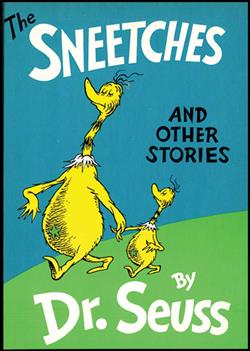
Retaliation shows up in some weird ways. For example, Reginald Denny was pulled from his semi and nearly beaten to death in the ’92 Los Angeles riots as an act of retaliation against the L.A. Police Department’s brutal beating of Rodney King. Denny had nothing to do with King’s beating; he just happened to be white and in the wrong place at the wrong time. Incidentally, it was a black man who drove Denny to the hospital and saved his life.
I understand that pent-up anger has to go somewhere. Seeing the recent photos from Syria of displaced fathers holding their hungry or wounded children . . . I can see the rage in their eyes. I would feel the same. Bruce Cockburn’s “If I Had a Rocket Launcher” depicts what an otherwise law-abiding, peaceful man wants to do when confronted with gross injustice:
I don’t believe in guarded borders and I don’t believe in hate
I don’t believe in generals or their stinking torture states
And when I talk with the survivors of things too sickening to relate
If I had a rocket launcher . . . I would retaliate
On a more domestic scale, how many fist-size drywall patches scar walls that once served as vicarious replacements of someone’s face? It’s a sense of justice and fairness that demands retaliation. The ire has to go somewhere, if not directly back on the offender. Sometimes the urge to retaliate lasts only for that emotional instant when the pain is fresh and time eventually heals that wound; other times the grudge lasts for generations.
The definition of retaliation in the legal dictionary reads: “The act by which a nation or individual treats another in the same manner that the latter has treated them.”
Doesn’t that sound like another famous rule? It’s the inverse of the Golden Rule. Retaliation is treating others how they treated you, not how you wish they had treated you. Paybacks are hell. They really are.
This shows up in less violent ways in social circles. Are you a scorekeeper? Do you say to your friend, “You bought lunch last time; it’s my turn.” Or with spouses or roommates: “It’s your turn to do the dishes.” Be honest. When things get a little lopsided, do you start to feel resentment? Do you feel disrespected, violated? Maybe the next minor quarrel you have explodes into a major one, igniting that short fuse you’ve been trimming down with every recorded abuse. Why are we afraid to talk about it openly? Are we embarrassed to admit we’ve been keeping score? Perhaps if we communicated more honestly, we’d store up less anger and grow tougher skin.

Maybe you’ve seen Ricky Gervais’ 2009 movie, The Invention of Lying. The premise is that the human race has never evolved the ability to tell a lie. Everyone tells the absolute truth. There’s no deceit, flattery or fiction. People say exactly what they think. We see brutal honesty in lots of movies. Perhaps screenwriters frequently utilize it because the fragile public finds it risk-taking and refreshing. In order to translate this fantasy from the silver screen to our real lives we must first toughen up. When we’ve embraced ourselves and our humanness we stop apologizing for being human, we take fewer things personally, we become unoffendable. As such, we’re empowered to embrace the humanness of others; we’re less judgmental. People who do not love themselves are more susceptible to take insults to heart and more likely to dish them out. Hurt people hurt people. Thus the cycle goes on and on.
When we’re afraid to be honest, resentment festers. We build walls of separation. Then we throw rocks over the walls. Our social identities absorb these divisions like a tree grows around a fencepost. Our “enemies” begin to define us. We can’t see the evil of our own hatred because the fog of “justice” vindicates our retaliation. We can’t feel the other’s pain because our own pain is too great. This happens in the macro (racism, nationalism, tribalism, holy wars, etc.) and the micro (with family, in relationships, even interpersonally). I dream of a world that doesn’t suffer from pandemic separation anxiety. Tragically, humanity’s beautiful diversities provide plenty of “proof” for anyone looking for evidence to confirm their prejudice, insecurity, and fear.
You might think this problem is insurmountable, deeply complicated and here to stay. What if I told you that the wisdom needed to change the future of our species was so simple that it could be found in a children’s book?
In the book The Sneetches and Other Stories, Dr. Seuss describes a community divided into “us and them”:
Now, the Star-Belly Sneetches had bellies with stars.
The Plain-Belly Sneetches had none upon thars.
But, because they had stars, all the Star-Belly Sneetches
Would brag, “We’re the best kind of Sneetch on the beaches.”
With their snoots in the air, they would sniff and they’d snort
“We’ll have nothing to do with the Plain-Belly sort!”
Eventually, a man comes to town, Sylvester McMonkey McBean, and offers to tattoo stars on the Plain-Belly Sneetches. And they agree. Soon, no one can tell the difference. This does not set well with the elites. So McBean offers to remove their stars. And they do. And for a while they can tell each other apart again. Quickly, those with newly tattooed stars have theirs removed. Consequently, those with removed stars have theirs put back on.
They kept paying money. They kept running through
Until neither the Plain nor the Star-Bellies knew
Whether this one was that one . . . or that one was this one
Or which one was what one . . . or what one was who
That day they decided that Sneetches are Sneetches
And no kind of Sneetch is the best on the beaches.
Retaliation is the same as when an individual self-flagellates, as when a nation bombs its neighbor; the bomb sent around the world always deploys on its sender. Maybe teen cutters somehow understand this in their primordial soul; they just skip to the true recipient of their angst. The same separation anxiety that invokes violence on others will ultimately result in the suicide of our species. We drink the poison and expect our enemies to die. So although it feels good (and right) to retaliate, it’s only because we have fallen for the myth of separation. Who knew that the solution was so simple? Sneetches are Sneetches.













